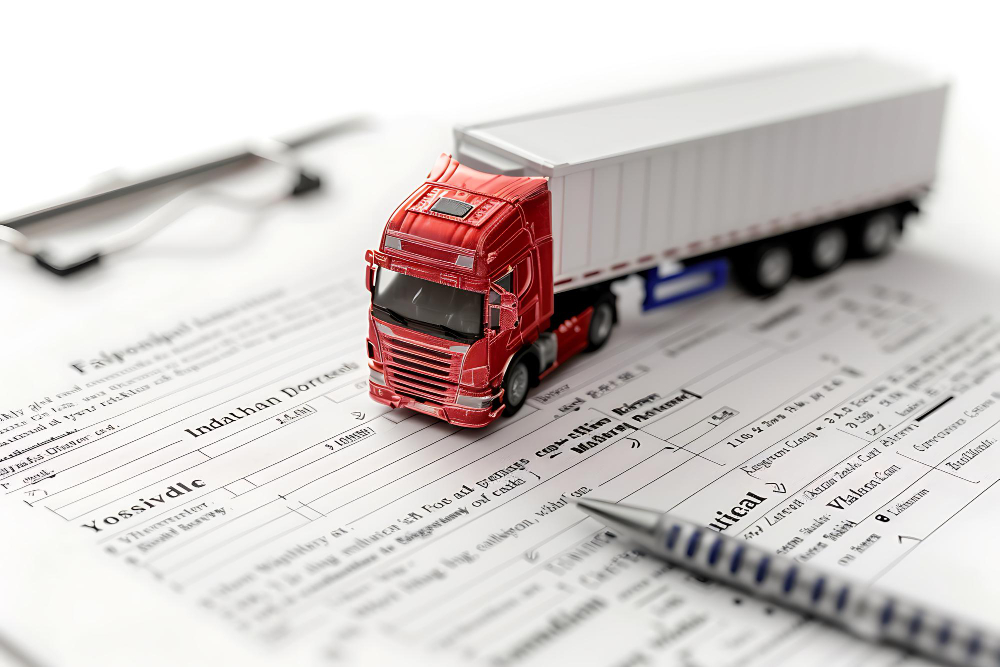
The transportation sector is one of the most dynamic and indispensable elements of economic life. Companies and individuals operating in this sector are required to provide services in accordance with legal regulations. This is where the concept of the K certificate comes into play. What is the K1 certificate, what is the K2 certificate, and how are these documents obtained? Here are all the details you are curious about…
What is the K Certificate?
The K certificate is an official document issued to authorize vehicles and businesses operating in the transportation sector legally. Thanks to this document, transportation services are carried out within specified rules and standards. Safety, order, and supervision are critically important in transportation. The K certificate helps ensure these elements, contributing to a safer and more organized operation of the sector.
What is the K1 Certificate?
The K1 certificate is a document that businesses engaged in domestic commercial freight transportation in Turkey must possess. It is a mandatory document for companies operating within the legal framework in the transportation sector. In other words; if a company or individual wants to transport goods along certain routes, they must have the K1 certificate. The K1 certificate ensures that transportation operations are carried out safely, while also helping regulate competition within the sector. With this certificate, companies demonstrate that they fulfill their legal responsibilities. The K1 certificate is an essential part of businesses involved in domestic commercial freight transportation in Turkey. It ensures that transportation activities are conducted legally and safely, and it helps raise industry standards.
How to Obtain the K1 Certificate?
Those who want to obtain the K1 certificate must first apply to the Ministry of Transport and Infrastructure or through e-Government. Results can be obtained within 15 business days after the application. Documents required for the K1 certificate include a copy of identity, tax registration certificate, and trade registry gazette. Providing these documents completely and accurately is very important for a quick approval process. Another point to pay attention to during the application process is that the documents must be up-to-date. It is prohibited to carry out commercial transportation without the K1 certificate, and in such cases, penal actions are applied. Therefore, obtaining the K1 certificate is extremely important to gain the authority to operate and to act in accordance with the law.
Prices of the K1 Certificate
The prices of the K1 certificate may vary depending on the institution applied to and the scope of the certificate. Each institution may set different fees, so it is important to conduct detailed research before applying. In some cases, additional documents or services may be requested, which can affect the cost. It is important to follow the official website of the Ministry of Transport or e-Government for current price information. These platforms provide accurate and timely information. To avoid any issues during the application process, it is also advisable to check the required documents along with the prices.
What is the K2 Certificate?
The K2 certificate is required for private businesses that perform full transportation with vehicles such as trucks, pickup trucks, or minibuses for parcel or full transportation. It ensures that transportation activities are carried out within the legal framework. Businesses holding the K2 certificate can meet their legal obligations and offer reliable services. They can gain a competitive advantage in the transportation sector. Along with the K2 certificate, additional benefits such as insuring transported goods are also provided. The K2 certificate is not only a legal requirement in the transportation sector but also an important document that supports the delivery of safe and efficient services. Possessing this certificate increases the reputation of businesses in the sector and ensures customer satisfaction.
How to Obtain the K2 Certificate?
The application process for the K2 certificate is similar to that of the K1 certificate. This document is important for businesses engaged in transportation activities. Applications can be made to the Ministry of Transport or via e-Government. During the application, copies of identity, business documents, and supporting documents must be submitted completely. Proper and complete preparation of documents is very important to speed up the process. Once the documents are complete, the K2 certificate can be obtained in a short time. After the application, the relevant institution will conduct necessary reviews and approve the certificate if deemed appropriate. Businesses should be careful during this process to ensure the certificate is obtained on time.
Prices of the K2 Certificate
The prices of the K2 certificate vary depending on the institution applied to. Therefore, each institution may have different fee schedules. The K2 certificate is an important document for businesses operating in the transportation and logistics sector, and a fee must be paid to obtain it. It is useful to check current prices before applying. Since prices may change over time, it is recommended to get the most accurate information from the official website of the relevant institution or customer service. Some institutions may offer additional services, which can also affect the price. Conducting price research before applying helps businesses plan their budgets accurately.
What Documents Are Required for the K1 and K2 Certificates?
Providing complete and accurate documents during the application process is very important for smooth and fast processing. Here are the generally required documents for the K1 and K2 certificates:
- Application form (obtained from relevant institutions)
- Copy of vehicle registration certificate
- Activity certificate or company establishment documents
- Proof of residence or company address information
- Copy of identity
- Financial capability documents (bank reference letter or guarantee)
- Traffic insurance and compulsory liability insurance documents
- Other relevant documents and permits
For more information about road transportation services, please visit our page!
What Are the Differences Between K1 and K2 Certificates?
The K1 Certificate is generally valid for large businesses and companies engaged in domestic freight transportation. This certificate is suitable for those who operate on fixed routes and regular transportation. Large-scale transportation companies can operate legally with the K1 Certificate and better manage their costs and operational processes.
The K2 Certificate is more suitable for individual or small-scale businesses. It is required for owners of pickup trucks and minibuses engaged in parcel transportation. Small businesses can perform more flexible transportation and fulfill their legal obligations with the K2 Certificate.
The main differences between these two certificates are determined by the size of the businesses and the type of transportation. With the K1 Certificate, large companies can carry out stable transportation, while the K2 Certificate offers more freedom to small businesses.
What Happens if Transportation Is Carried Out Without a K Certificate?
Carrying out commercial transportation without a K certificate is illegal and leads to severe sanctions. Such activities are against legal regulations and can have serious consequences for the individual or business involved. Penalties for illegal transportation activities may negatively impact the financial situation of businesses. These sanctions can include confiscation of vehicles and suspension of business activities. Operating without a K certificate also damages the reputation of the business. Losing customer trust, losing competitive advantage, and creating a negative image in the sector are some of the long-term consequences of these legal violations.
You may be interested in: What is Ubak? Usage Areas of Ubak Certificate



